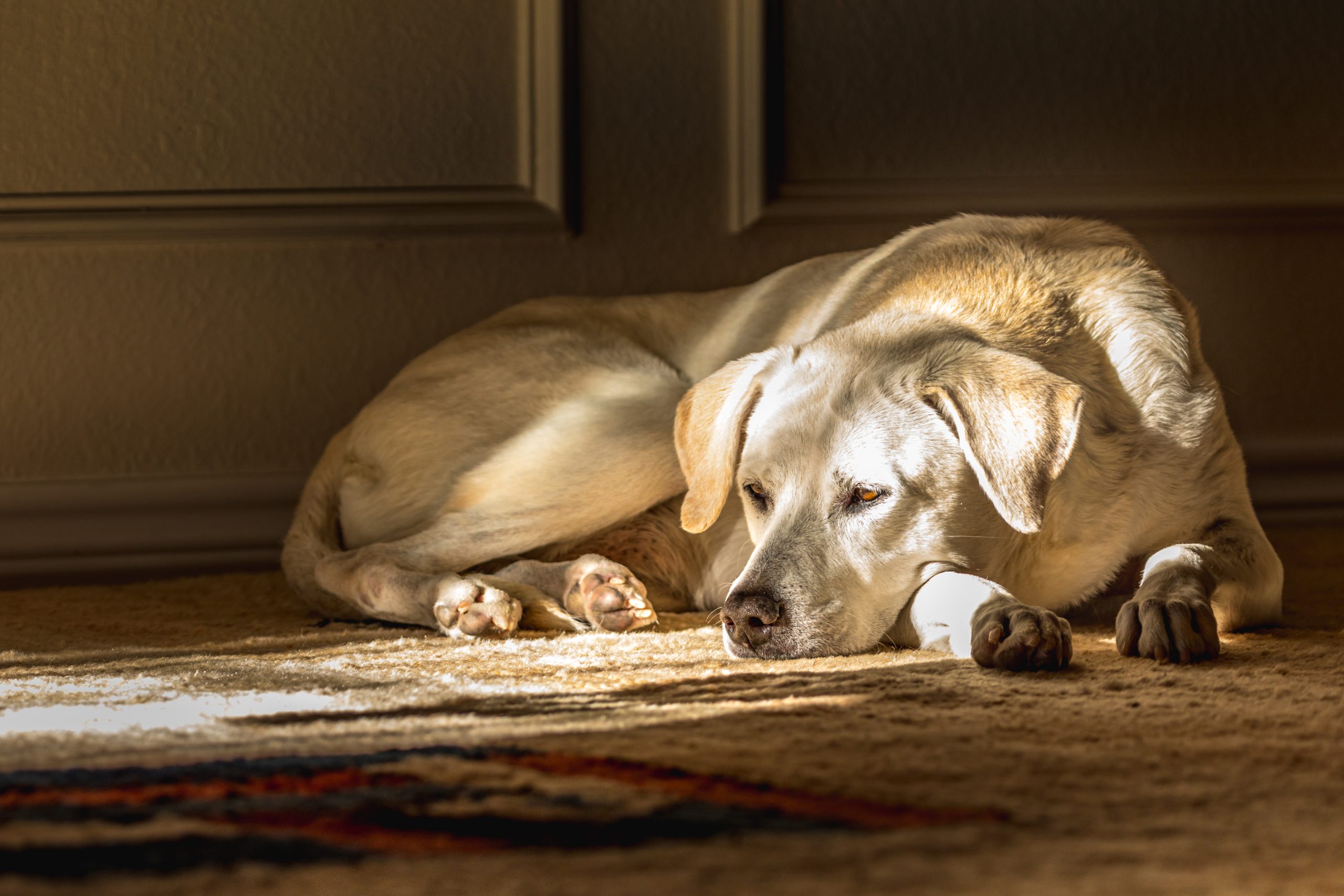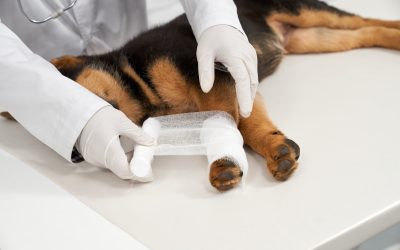Cancer in Dogs [Signs, Symptoms, Stages, Treatment]

Cancer is a devastating disease that affects not only humans but also our beloved furry friends. Cancer in dogs refers to the abnormal growth of cells that can invade nearby tissues and spread to other parts of the body. Just like in humans, cancer can occur in various forms and affect different organs in dogs. Understanding the nature of cancer is crucial in recognizing the signs, symptoms, and treatment options available for our canine companions.
What Are the Most Common Types of Cancer in Dogs?
Several types of cancer can affect dogs, with some being more prevalent than others. One of the most common types of cancer is skin cancer, which includes melanoma. Other prevalent forms include lymphoma, mast cell tumors, bone tumors (most commonly osteosarcoma), soft tissue sarcomas, tumors of the oral cavity, and nasal tumors.
What Causes Cancer in Dogs?
The exact causes of cancer in dogs are not fully understood, but several factors can contribute to its development. Genetics plays a significant role, as certain breeds are more prone to specific types of cancer. For example, Golden Retrievers have a higher risk of developing lymphoma, while Boxers are more susceptible to mast cell tumors. Environmental factors such as exposure to carcinogens like tobacco smoke or pesticides can also increase the chances of cancer in dogs. Additionally, age is a significant factor, as cancer is more commonly diagnosed in older dogs.

What Are the Signs and Symptoms of Cancer in Dogs?
Recognizing the signs and symptoms of cancer in dogs is crucial for early detection and treatment. Common signs include unexplained weight loss, loss of appetite, lethargy, and difficulty breathing. Dogs with cancer may also experience persistent lameness, swollen lymph nodes, or abnormal bleeding. Changes in behavior, such as increased aggression or decreased sociability, can also be indicators of cancer. It’s important to note that these symptoms can vary depending on the type and stage of cancer, so it’s vital to consult a veterinarian if any abnormalities are noticed.
How Is Cancer Diagnosed in Dogs?
Diagnosing cancer in dogs typically involves a combination of physical examination, blood tests, imaging, and biopsy. The veterinarian will check for any lumps, bumps, or abnormalities during a physical exam. Blood tests can provide valuable information about the dog’s overall health and may detect any significant changes that could indicate cancer. Imaging techniques such as X-rays, ultrasound, or MRI scans can help visualize the internal organs and identify any tumors or abnormalities. If a tumor is detected, a biopsy may be performed to determine if it is cancerous and what type of cancer it is.
What Are the Treatment Options for Cancer in Dogs?
The treatment options for cancer in dogs vary depending on the type, stage, and location of the cancer. Surgery is often used to remove tumors confined to a specific area that has not spread. In cases where surgery is not possible or to complement it, chemotherapy or radiation therapy may be recommended. These treatments aim to kill cancer cells or inhibit their growth. Immunotherapy is another emerging treatment option that utilizes the dog’s immune system to fight cancer. The choice of treatment depends on various factors, including the dog’s overall health, the type of cancer, and the potential side effects of the treatment.
Natural Remedies for Dog Cancer
In addition to conventional treatments, some pet owners may consider using natural remedies to support their dog’s cancer treatment. It’s essential to consult with a veterinarian before incorporating any natural remedies into the dog’s treatment plan, as some may interact with medications or have adverse effects. Herbal supplements such as turmeric, milk thistle, and medicinal mushrooms are believed to have anti-cancer properties and may help boost the immune system. Acupuncture and massage therapy can also comfort and support dogs undergoing cancer treatment.
Canine Cancer Treatment Costs and Financial Considerations
Treating cancer in dogs can be financially burdensome, especially if the treatment plan involves surgery, chemotherapy, or radiation therapy. The cost of cancer treatment varies depending on the type of cancer, the stage of the disease, and the chosen treatment options. Pet owners must consider their financial capabilities and discuss potential treatment costs with their veterinarian.
How to Prevent Cancer in Dogs
While cancer cannot always be prevented, there are steps that pet owners can take to reduce the risk of cancer in dogs. Maintaining a healthy lifestyle through regular exercise, a balanced diet, and weight management can contribute to overall well-being. Minimizing exposure to environmental toxins such as cigarette smoke, pesticides, and household chemicals is also crucial. Regular veterinary check-ups and early detection of any abnormalities can significantly increase the chances of successful treatment. Finally, spaying female dogs before their first heat cycle can significantly reduce the risk of breast cancer.
Emotional Support for Pet Owners Dealing with Canine Cancer
Dealing with a cancer diagnosis in a beloved pet can be emotionally challenging for pet owners. It’s essential for pet owners to seek emotional support and to understand that they are not alone in this journey. Connecting with other pet owners who have gone through similar experiences can provide a sense of community and understanding. Additionally, seeking professional support from a veterinary oncologist or a counselor who specializes in pet loss and grief can help navigate the emotional roller coaster that comes with a cancer diagnosis. Remember, providing love and support to our furry friends is essential, and seeking support for ourselves is equally important.

How Can Pet Insurance Help You if Your Dog Has Cancer?
Pet insurance can be a valuable tool in managing the costs of treating dog cancer and other veterinary expenses. By having a pet insurance policy in place, you can have peace of mind knowing that you can provide medical care for your furry companion without worrying about the financial burden. Pet insurance can help cover the costs of veterinary consultations, diagnostic tests, medications, and even specialized treatments if required.
Reimbursement
This method is the most common for pet insurance companies. You pay out of pocket for the veterinarian bill, and then the insurance company reimburses you for what’s covered under the insurance plan. The steps look like this.
- You pay the vet bill after your dog’s visit.
- You fill out the pet insurance claim form.
- Submit the claim form and other required documentation to the insurer.
- After the claim is approved, you will be reimbursed for eligible expenses.
What Does Odie Pet Insurance Cover?
Pet insurance covers various veterinary expenses, providing financial protection and peace of mind for pet owners. Here are the details of the coverage options offered by Odie Pet Insurance:
Illness & Injury Plan
The Illness & Injury Plan is an all-inclusive insurance plan designed to cover a wide range of medical needs for your pet. This plan includes comprehensive coverage for various illnesses, injuries, and veterinary services. Some of the covered items include:
- Veterinary exams and consultations
- Diagnostics (e.g., X-rays, lab tests)
- Prescribed medications
- Surgeries and hospitalization
- Rehabilitation, acupuncture, or chiropractic treatments
- Medically necessary supplies
The Wellness Plan
The Wellness Plan is a monthly membership that focuses on preventive care and covers routine veterinary services.
- Provides reimbursements for routine care items such as wellness visits (exams and vaccines), testing and parasite prevention, dental cleanings and at-home dental care, vitamins, supplements, and more
- Through Odie’s partnership with Petivity, a leader in smart pet products and proactive care, Wellness Plan members can also receive reimbursements for Petivity devices and health kits, as well as eligible Purina food and supplements.
- Total reimbursement up to $700 per year.



